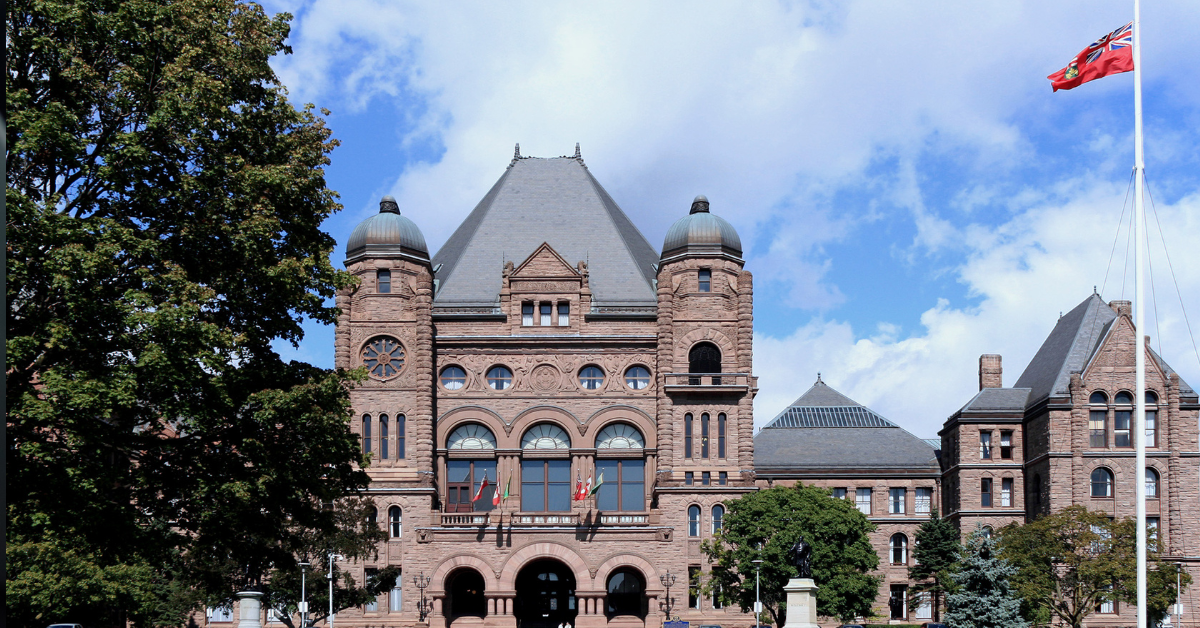BETWEEN THE NUMBERS
2018 Federal Budget Overview – What you Need to Know
The Federal Government’s 2018 Budget was tabled on February 27, 2018 and substantially reduced the projected annual deficits through 2022–23 and expects the net debt-to-GDP ratio to decline over the period as well. The previously projected deficit for 2017–18 was $28.5 billion and now sits at $19.4 billion. Similarly, the projected deficit for 2021–22 was $18.8 billion and has been revised down to $13.8 billion. Federal revenues increased by more than 11 percent in 2017, largely from personal and corporate income taxes. See our 2018 Ontario Provincial Budget overview here.
Highlights include:
· Reducing access to the small business tax rate for businesses with high passive investment income (expected to apply 2019)
· Curtailing the ability for corporations to pay eligible dividends prior to the payment of ineligible dividends to obtain corporate dividend refunds
· Additional reporting requirements for trusts (effective 2021 tax year)
· Extending eligibility for accelerated capital cost allowance for certain clean energy equipment
· Enhancing and renaming the Working Income Tax Benefit (starting 2019)
· Annual indexation of the Canada Child Benefit (starting July 1, 2018)
· “Use it or lose it” EI parental benefits (expected availability June 2019)
· Applying GST/HST to management and administrative services provided to an investment limited partnership by the general partner (after September 8, 2017)
· Additional new measures to prevent tax avoidance
· Adjusting tobacco excise duty rates annually (starting April 1, 2019)
· Grants and funds to attract women to “Red Seal” trades and construction (starting 2018–19)
· Pre-apprenticeship assistance for underrepresented groups (starting 2018–19)

Business Income Tax Measures
Passive Investment Income Earned by Private Corporations
The Budget proposes to introduce measures to reduce perceived tax advantages where a private corporation earns passive income. Note that the measures introduced in Federal Budget 2018 are completely different from those initially announced July 18, 2017 and by and large represented a surprise to many in the tax practitioner community.
The Budget proposes two sets of new provisions concerning passive investment income:
1. $500,000 Business Limit Reduction
2. Refundable Dividend Tax on Hand (RDTOH) Changes
Passive investment income typically represents dividend income earned from portfolio investments, interest, taxable capital gains, rental income and royalties. Taxable capital gains on the sale of active investments will be excluded from the definition of passive investment income for the purpose of these measures.
$500,000 Business Limit Reduction
Small businesses corporations carrying on an active business in Canada receive a preferential corporate income tax rate on their first $500,000 of active income. This $500,000 threshold is known as the small business limit and the proposed provisions will reduce the group’s business limit on a straight line basis where the group earns “adjusted aggregate investment income” between $50,000 and $150,000. The reduction will be $5 for every $1 of investment income. Consequently, an associated corporate group’s business limit will be reduced to zero (5 × $100,000 = $500,000) in a particular year if its adjusted aggregate investment income is $150,000 or more. This proposal will apply to taxation years that commence after 2018 with no grandfathering of passive income earned on existing investments. Consequently, all future investment earnings will be included in this annual test, regardless of when the applicable investments were accumulated. This measure to reduce companies’ business limit is over and above existing tax rules designed to reduce companies’ business limit such as taxable capital thresholds between $10 million and $15 million. Finally, the Budget contains anti-avoidance measures to discourage transactions to delay or avoid the new rules.
Changes to Refundable Dividend Tax on Hand (RDTOH)
Currently, a dividend refund is available to a corporation at the rate of 38 1/3 per cent of taxable dividends paid to the extent that there is an available balance of RDTOH at the corporation’s year-end. The corporation’s RDTOH balance is typically increased where a corporation earns passive investment income. Prior to the Budget, a corporation could obtain a dividend refund by declaring and paying an eligible dividend in lieu of a non-eligible dividend. The personal income tax rates applicable to eligible dividends are lower than those applicable when an individual receives an non-eligible dividend.
The Budget proposes to introduce measures that will generally allow a CCPC to recover its RDTOH only on the payment of non-eligible dividends. On the payment of a non-eligible dividend, a private corporation must obtain a dividend refund from its non-eligible RDTOH before it can obtain a dividend refund from its eligible RDTOH. An exception will apply to RDTOH arising on the payment of Part IV tax on eligible portfolio dividends. Such RDTOH will also be recoverable on the payment of eligible dividends.
Income Sprinkling Measures
The Budget confirms that Finance will proceed with the implementation of the December 13, 2017, draft proposals that address income sprinkling involving private corporations. We have reviewed the Tax on Split Income (TOSI) regime in an earlier article.
Health and Welfare Trusts (HWT)
An HWT is a trust established by an employer to provide health and welfare benefits to its employees. Since the tax treatment of HWTs is not set out in the ITA, CRA has published an administrative position which sets out the requirements of HWTs and the income tax consequences.
The Budget proposes to discontinue the application of CRA’s administration position after the end of 2020 in order to encourage conversion of such trusts to employee health and life trusts for which there are specific rules in the ITA. The Department of Finance has requested comments by June 29, 2018, on the transitional rules.
Tax Support for Clean Energy
Capital cost allowance (CCA) Classes 43.1 and 43.2 provide accelerated CCA rates for investments in specified clean energy generation and conservation equipment. Class 43.2 was introduced in 2005 and is currently available in respect of property acquired before 2020. The Budget proposes to extend eligibility for Class 43.2 by five years to include property acquired before 2025.
Artificial Losses Using Equity-Based Financial Arrangements
A corporation can generally deduct dividends received on a share of a corporation resident in Canada (a “Canadian share”). However, the current “dividend rental arrangement” rules deny this deduction where the main reason for an arrangement is to enable the taxpayer to receive a dividend on a Canadian share, and the risk of loss or opportunity for gain or profit accrues to someone else.
The Government is concerned that certain taxpayers are still engaging in abusive arrangements that are intended to circumvent the dividend rental arrangement rules and result in an artificial tax loss on the arrangement. Consequently, the Budget proposes an amendment which broadens the dividend rental arrangement rules and securities lending arrangement rules in order to prevent taxpayers from claiming a deduction for inter-corporate dividends received in situations where substantially all of the opportunity for gain or profit or risk of loss in respect of a Canadian share rests with certain persons other than the taxpayer. Similar rules are proposed to clarify situations in which a dividend compensation payment can be deducted.
These proposed rules are generally effective for dividends paid, or dividend compensation payments made, on or after February 27, 2018.
Stop-Loss Rule on Share Repurchase Transactions
The Budget proposes an amendment to the dividend stop-loss rule to decrease the tax loss on a repurchase of shares held by the taxpayer as mark-to-market property where it receives a tax deductible inter-corporate dividend on the repurchase. This amendment generally reduces the tax loss by the full amount of the deemed dividend.
This proposal will apply to share repurchases occurring on or after February 27, 2018.
At-Risk Rules for Tiered Partnerships
In response to a recent Federal Court of Appeal ruling, the Budget proposes to restrict the allocation of losses to members of a top-tier partnership in tiered partnership structures for taxation years that end on or after February 27, 2018, including losses incurred in tax years that ended prior to that date. The allocable losses of a second-tier partnership will be restricted by the at-risk amount of the top-tier partnership, and unused losses will not be eligible to be carried forward indefinitely. Such unused losses will be added to the adjusted cost base of the partnership interest of the second-tier partnership.

PERSONAL INCOME TAX MEASURES
The Budget did not propose a number of changes that were the subject of speculation prior to the Budget. The capital gains inclusion rate will not increase and remains at 50 per cent. In addition, proposals in respect of “surplus stripping” first introduced in July 2017 and then abandoned have not been reintroduced.
Personal income tax rates will not increase under the Budget.
Canada Workers Benefit (CWB)
The Budget enhances the existing Working Income Tax Benefit and renames it as the Canada Workers Benefit, effective for 2019 and subsequent years.
The CWB will be 26 per cent of “earned income” in excess of $3,000 to a maximum of $1,355 for single taxpayers without dependents and $2,335 for families (couples and single parents). The CWB is reduced where net income exceeds a threshold amount. The CWB disability supplement for individuals certified as eligible for the disability credit will be $700. Amounts will be indexed after 2019.
The Budget also proposes to allow the CRA to determine if a taxpayer is eligible for the CWB even if not claimed on their tax return and assess as if it had been claimed. This measure applies to tax returns for 2019 and subsequent taxation years.
Medical Expense Tax Credit (METC) — Service Animals
The Medical Expense Tax Credit is currently available in respect of expenses incurred for a service animal specially trained to assist an individual in coping with blindness, profound deafness, severe diabetes, severe epilepsy, severe autism or a severe and prolonged impairment that markedly restricts the use of the individual’s arms or legs. The Budget proposes to extend the METC to expenses for animals specially trained to perform tasks for an individual with a severe mental impairment. An example is a psychiatric service dog trained to assist an individual with post-traumatic stress disorder.
Expenses for animals that provide comfort or emotional support, but are not specially trained, will not qualify. Qualifying expenses include the cost of the animal, costs for care and maintenance such as food and veterinary care, and costs for training the individual in handling the animal. This measure will apply in respect of expenses incurred after 2017.
Registered Disability Savings Plans (RDSP)
The plan holder of a Registered Disability Savings Plan must be the individual’s legal representative where the capacity of the of the individual to enter into a contract is in doubt, for example where the individual has a cognitive disability. Where the individual does not have a legal representative in place, certain family members (parents, spouses and common-law partners) are allowed to be the RDSP plan holder. This provision was to expire at the end of 2018. The Budget extends it to the end of 2023. If a family member becomes a plan holder before the end of 2023, they will be able to continue as the plan holder after 2023.
Contributions to Enhanced Portion of the Quebec Pension Plan (QPP)
Individuals are currently entitled to a non-refundable credit in respect of employee contributions and the “employee” portion of self-employed contributions to the Quebec Pension Plan. The QPP is being enhanced, starting in 2019. The Budget proposes that the enhanced part of the contributions be deductible to the individual.
Child Benefits
Foreign-born Status Indians who legally reside in Canada but are neither Canadian citizens nor permanent residents are eligible for the Canada Child Benefit (CCB), provided all other eligibility requirements are met. The Budget proposes to make them retroactively eligible for the Canada Child Tax Benefit, the National Child Benefit supplement and the Universal Child Care Benefit, the predecessors to the current CCB.
The Budget also proposes to provide authority for the federal government to share taxpayer CCB information with the provinces for the purpose of administering their social assistance payment regimes. This measure is effective July 1, 2018.
Mineral Exploration Tax Credit for Flow-Through Share Investors
Eligibility of the Mineral Exploration Tax Credit is proposed to be extended for one year under the Budget. The credit will apply to expenses renounced under flow-through share agreements entered into on or before March 31, 2019.
Employment Insurance Parental Sharing Benefit
The Budget proposes a new five-week Employment Insurance Parental Sharing Benefit, effective June 2019. This benefit will be available as a top-up in situations where both parents agree to share parental leave. It will be available to eligible two-parent families, including same sex-couples and adoptive parents. This new benefit is intended to provide greater flexibility, particularly for mothers, to return to work sooner.
Apprenticeship Incentive Grant for Women
Current legislation provides for the Apprenticeship Completion Grant which is a one-time taxable cash grant of $2,000 to a registered apprentice who has completed their apprenticeship training and obtains their journeyperson certification. The Budget proposes a new Apprenticeship Incentive Grant for Women. Under this program, women in male-dominated Red Seal trades will be able to receive $3,000 per year for each of their first two years of training. Nearly 90 per cent of Red Seal trades would be eligible, according to the Budget documents. Presumably this grant would be taxable, but this is not clear from the budget documents.

INTERNATIONAL
Surplus Stripping
Section 212.1 is a provision that is intended to prevent a non-resident (the transferor) from stripping surplus out of a Canadian resident corporation (Canco) as a capital gain which might be realized free of Canadian tax rather than as a dividend that would be subject to Canadian withholding tax. I
The Budget proposes to introduce an anti-avoidance measure, effective for transactions on or after Budget Day, to prevent section 212.1 from being circumvented by having a partnership or trust own the surplus-laden Canco shares. The transferor would avoid section 212.1 by selling the partnership or trust interest rather than the Canco shares.
Foreign Accrual Property Income
In broad terms, foreign accrual property income (FAPI) is passive income earned by a “foreign affiliate” of a Canadian resident. FAPI is taxed on the accrual basis to the Canadian shareholder of a “controlled foreign affiliate.” The FAPI rules would be otherwise circumvented where the foreign affiliate has more than five employees. The Budget proposes to introduce measures that would prevent the circumvention of the “more than five employee” rule where taxpayers combine investment activities in a single entity to meet the more than five full-time employees test.
Reporting Requirements
The Budget proposes to shorten the filing deadline for the foreign affiliate information reporting (T1134) from the current 15 months after the Canadian company’s year-end to six months after the year-end to coincide with the filing deadline for the corporate tax return (T2).
This proposal applies to taxation years that begin after 2019.
Sharing Information for Criminal Matters
The Budget proposes to allow the legal tools available under the Mutual Legal Assistance in Criminal Matters Act to be used by CRA in order to facilitate the sharing of information related to tax offenses under Canada’s tax treaties, tax information exchange agreements and the Convention on Mutual Administration Assistance in Tax Matters. In addition, the Budget proposes to enable the sharing of tax information with Canadian mutual legal assistance partners in respect of acts that, if committed in Canada, would constitute terrorism, organized crime, money laundering, criminal proceeds or designated substance offenses. These proposals will also enable confidential information under Part IX of the Excise Tax Act and the Excise Act, 2001 to be disclosed to Canadian police officers in respect of those offenses where such disclosure is currently permitted under the ITA.
Trusts
Reporting Requirements
The Budget proposes extensive new reporting requirements for most family trusts, effective for returns required to be filed for 2021 and subsequent taxation years. These requirements could impose an obligation to file a return where none currently exists, such as where the trust earned no income in the year. The trust will be required to report the identity of all trustees, beneficiaries and settlors of the trust. In addition, the identity of each person who has the ability to exert control, through the trust terms or a related agreement, over trustee decisions in respect of the appointment of income or capital must be disclosed.
These new reporting requirements are designed to provide better beneficial ownership information.
The Budget also introduces penalties for failure to file a trust return where the new reporting requirements apply. The penalty will be $25 per day late with a minimum of $100 and a maximum of $2,500. If the failure to file is made knowingly, or as a result of gross negligence, there will be an additional penalty of five per cent of the maximum fair market value of property held during the year with a minimum of $2,500.
CHARITIES
Municipalities as Eligible Donees
Where a registered charity’s registration is revoked, either at its request or because of non-compliance, a revocation tax of 100 per cent of the net value of the charity’s assets is imposed. This tax can be reduced by making qualifying expenditures, including gifts to “eligible donees,” generally another registered charity where its directors/trustees are arm’s length with those of the revoked charity.
The Budget proposes to allow transfers of property to municipalities to be qualified expenditures for this purpose, subject to case-by-case approval, thus reducing the revocation tax. This measure will apply to transfers made on or after February 27, 2018.
Universities Outside Canada
Certain categories of “qualified donees,” including universities outside Canada, are required to register with the CRA and are listed on the CRA website. Foreign universities are also required to be prescribed in the Income Tax Regulations. The Budget proposes to eliminate this duplication in respect of universities by removing the Income Tax Regulation requirement as of February 27, 2018.

SALES TAX AND EXCISE TAX MEASURES
GST/HST and Investment Limited Partnerships
The Budget confirms the Federal Government’s intention to proceed with the legislative and regulatory proposals released on September 8, 2017, relating to the application of GST/HST to investment limited partnerships with the following modifications:
· GST/HST only applies to management and administrative services rendered by the general partner on or after September 8, 2017, and not before this date unless the general partner has charged the GST/HST in respect of such services before that date
· GST/HST will generally be payable on the fair market value of the management and administrative services in the period in which they are provided
· An investment limited partnership will have the ability to make an election to advance the application of these rules as of January 1, 2018.
Tobacco Taxation
The excise duty rate is proposed to increase by an additional $1 per carton of 200 cigarettes with corresponding increases to the excise duty rates on other tobacco products. The Budget also proposes to increase the excise duty on tobacco products on an annual basis rather than to automatically increase it every five years to account for inflation.
Cannabis Taxation
The Budget proposes a new excise duty framework for cannabis products to be introduced as part of the Excise Act, 2001. The duty will generally apply to all products available for legal purchase including fresh and dried cannabis, cannabis oils and seeds and seedlings for home cultivation. Cannabis cultivators and manufacturers (cannabis licensees) will be required to obtain a cannabis licence from the CRA and remit the applicable excise duty.





